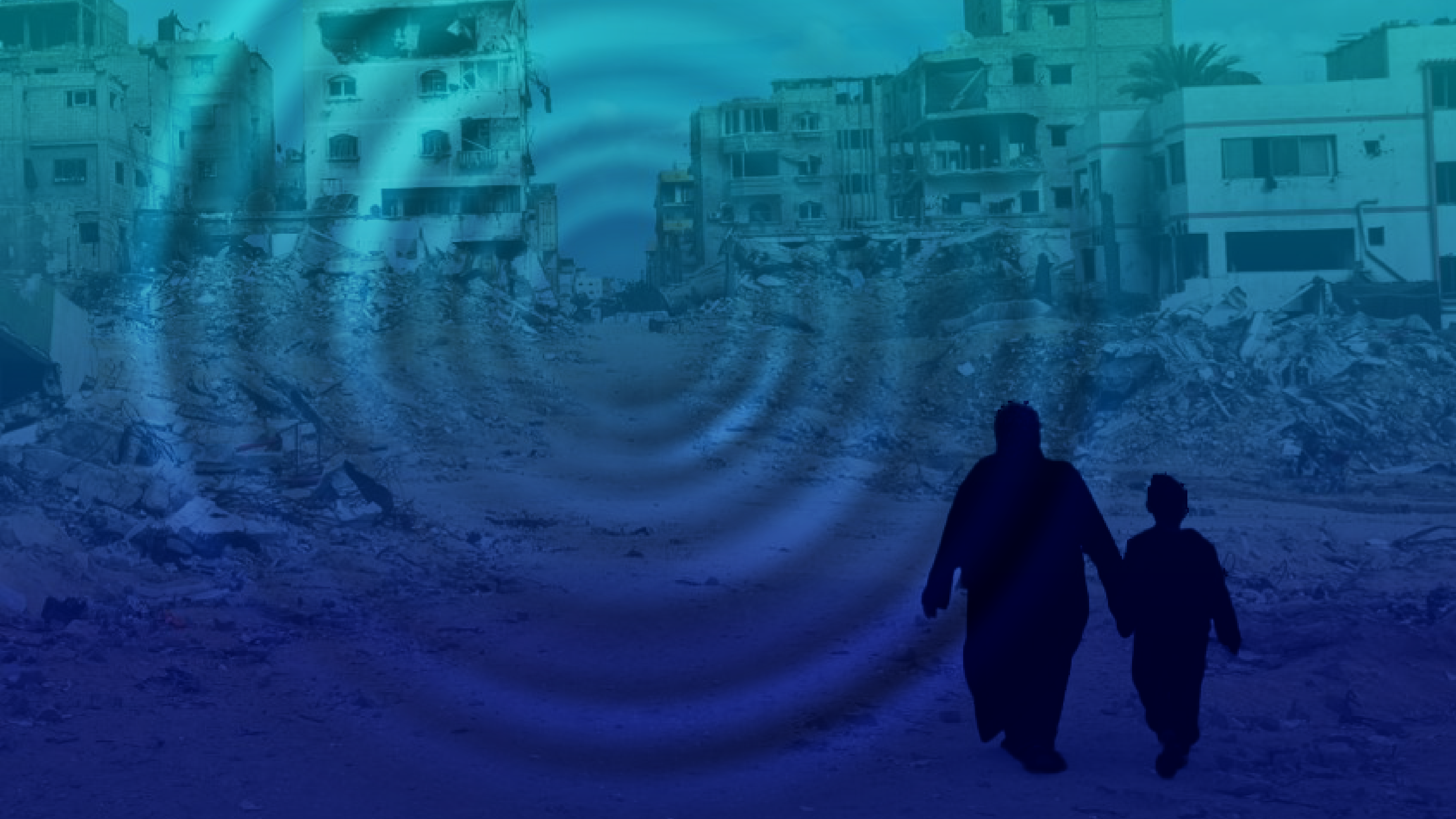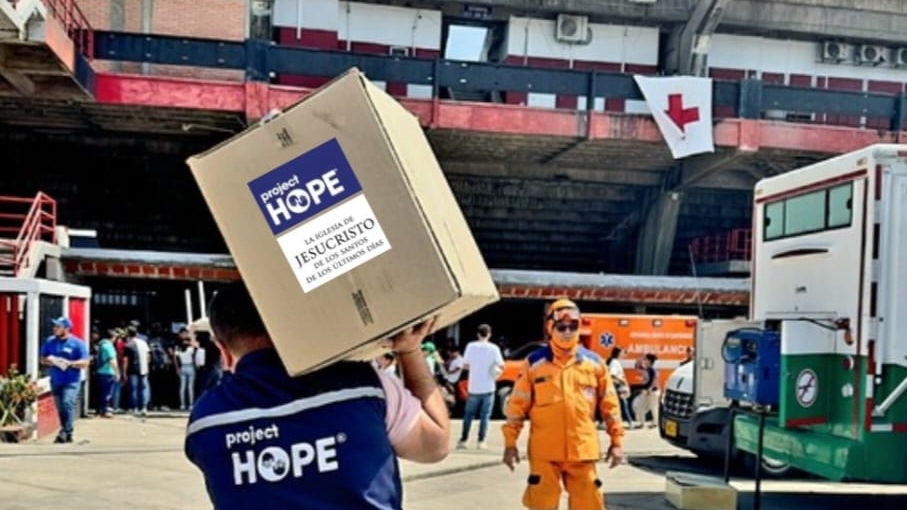I Endured Ukraine’s War for Two Years. It Motivated Me to Go to Gaza.
Read a firsthand account from Project HOPE’s Ukraine program specialist about what drove her to lead our humanitarian response in Gaza.
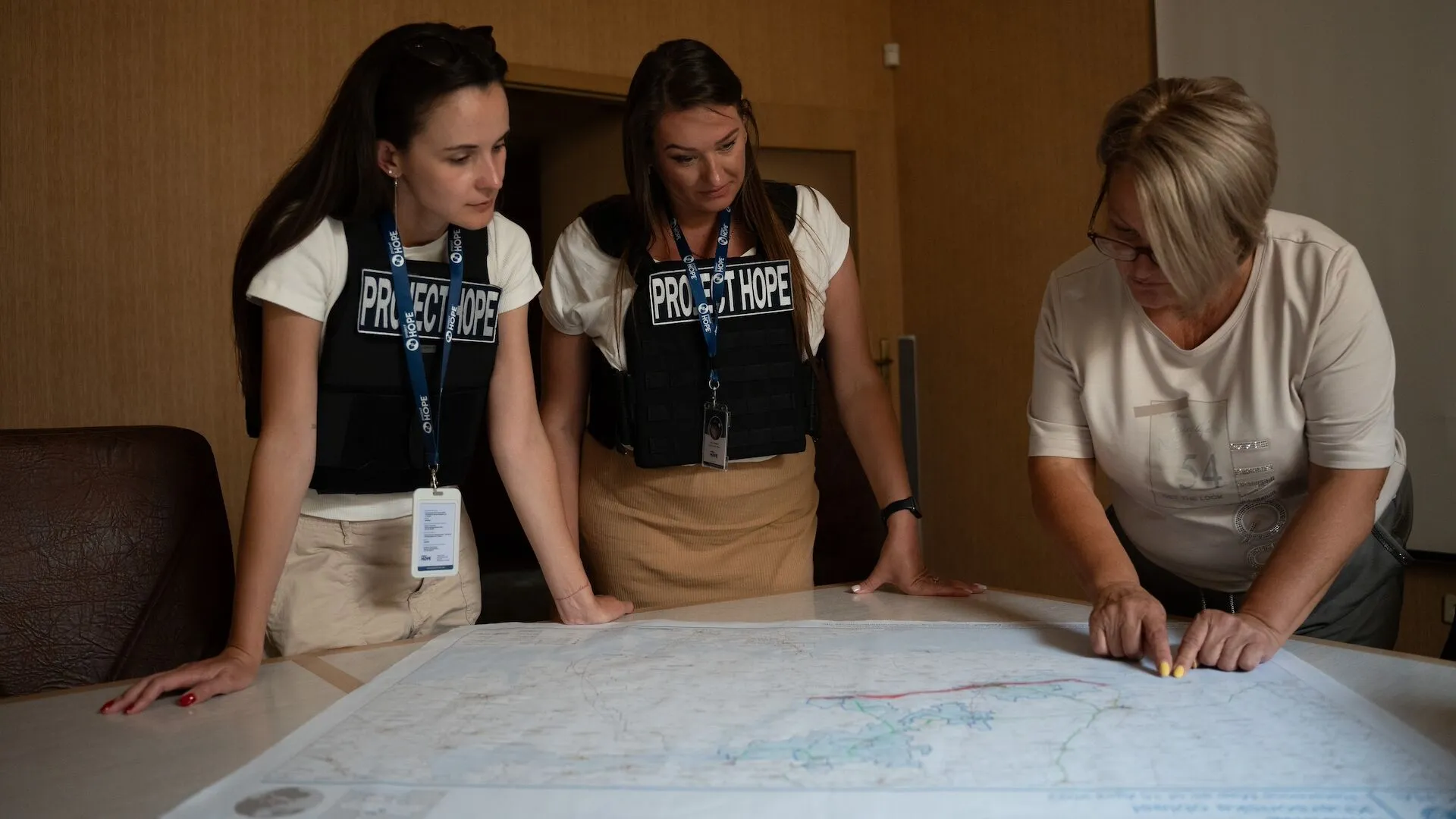
“You have been living in war for more than two years in Ukraine—and you went to Gaza?”
This is the most frequent question I am asked after my return from Gaza. As a person who sought refuge in a basement during intense shelling, fled her hometown of Irpin under constant bombing at night, and returned to a devastated city and home after liberation, I am deeply empathetic and saddened by the suffering of those enduring such heartbreaking horrors in another country.
What is it like to live in war for more than two years? Even now, I sometimes feel like I am trapped in a terrible nightmare. Every night, I go to bed hoping that my son won’t be awakened in terror by airstrikes, forcing us to run to the basement or bathroom for safety. The war in Ukraine has caused immense pain, suffering, destruction, and the separation of families. It is incredibly difficult to stay strong, but I have no choice but to stand with my people and support them the best way I can.
June 1, 2024 marked two years since I joined Project HOPE Ukraine. Throughout this time, I have been deeply moved by the words of a woman who lost her husband while evacuating with her two children from Mariupol. I remember that day with such clarity. My team and I were conducting a needs assessment at a center for internally displaced people (IDPs) in Kyiv. I approached a woman standing in line with her two children and introduced myself. To my surprise, she collapsed onto my shoulder and began to cry so desperately.
Through her tears, she shared her heartbreaking story of losing her husband and her struggles to survive with her children. Then, suddenly, she lifted her face, dried her eyes, and stared at me with unwavering determination. She said, “We need to be strong, whatever it takes, for our future, for our country, for our children.”
Those words have stayed with me ever since, giving me the strength to keep going.

The situation in Ukraine becomes more extreme every day. As the war devastates towns and villages near the front line, humanitarian needs in these regions are becoming catastrophic.
To date, Project HOPE, in partnership with local health care facilities, operates approximately 40 mobile medical units (MMUs) near the frontline areas. Thanks to these MMUs, dedicated doctors and nurses travel to rural villages to provide crucial medical services to those in need — filling the gaps left in Ukraine’s health system caused by destroyed health facilities, the displacement of health workers, and a lack of transportation. Thanks to the unwavering commitment of these medical professionals, people can receive the essential care they so desperately need.
In the Vasylivska community of the Zaporizhzhia oblast, Project HOPE’s MMU operates in what is referred to as the “grey zone,” an area other nonprofit organizations avoid. For Project HOPE, it is especially crucial to support the staff and residents in these areas by delivering vital aid, such as pharmaceuticals and hygiene kits, and offering words of comfort and encouragement.
Early in the morning, my team and I embarked on a trip to this area to deliver aid. As the team traveled to one of the villages in the community, a heavy silence filled the vehicle. Everyone was intensely focused, listening to gauge how close the shelling was. The scene outside was haunting: houses scarred by shelling, roads pocked with shell holes, and the constant, unsettling sound of shelling echoing in the background. Despite everything, we have managed to provide much-needed aid to people there.
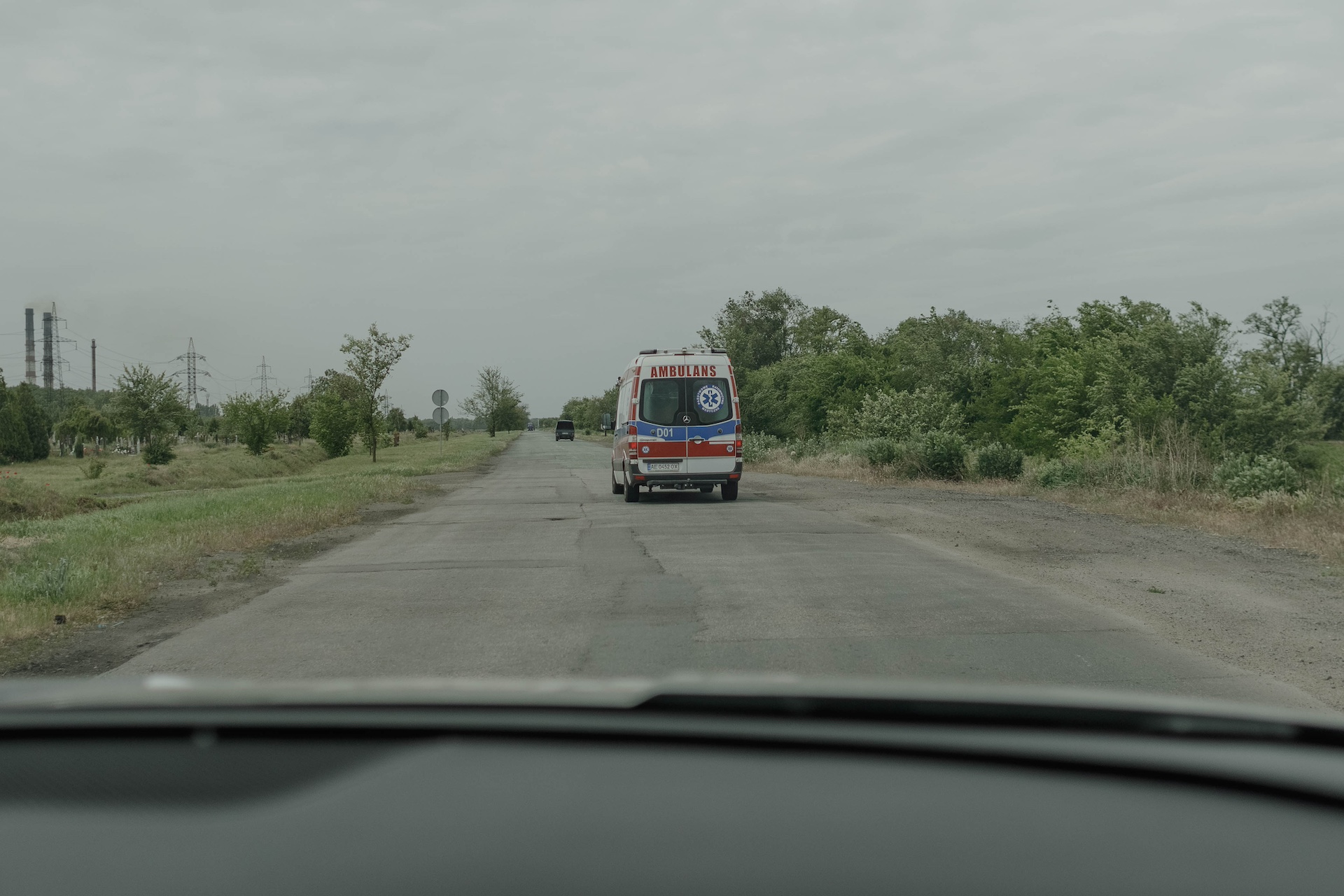
Just as we did in Ukraine, Project HOPE immediately launched a response in Gaza as soon as the conflict started. My team — and our great response in Ukraine — motivated me to go to Gaza and support Project HOPE’s local Gaza team in their response to the suffering of the local community.
I was in Cairo preparing for my trip to Rafah and looking forward to meeting all of Project HOPE’s Gaza team. But it didn’t happen. Mohammed Madi, a dedicated nurse in our Rafah medical point, was killed with all his family by an overnight airstrike that hit their home. The news of his death was devastating and brutal, as was the thought that thousands of other innocent civilians across Gaza had experienced the same fate.
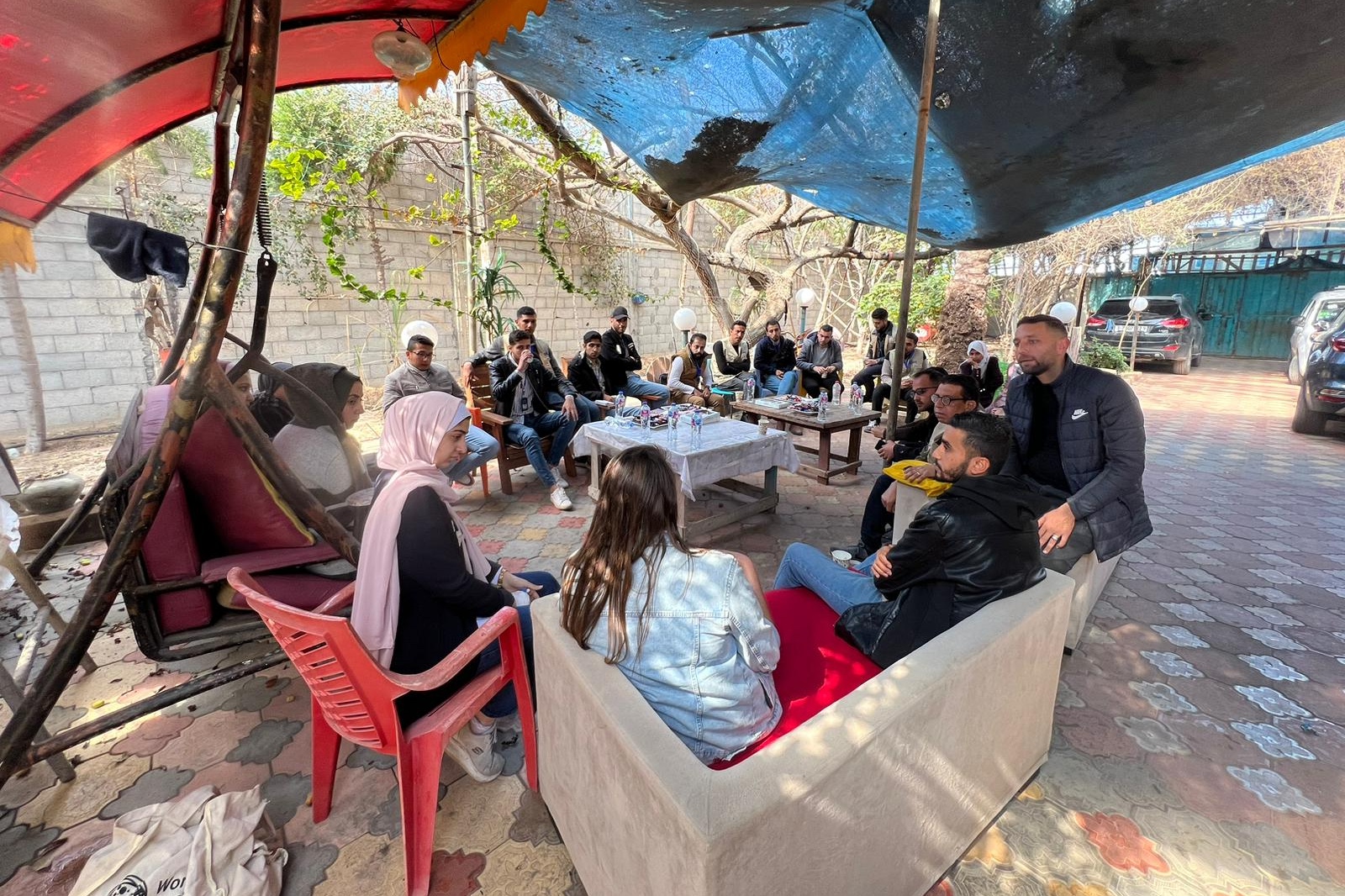
I entered Gaza. The most heartbreaking view on my way through the Rafah Crossing was the sight of hundreds of displaced people, children, pregnant women, and men standing alongside the road — all holding hope that aid would cross the border and that today would be the day they would get some food to survive. They said nothing, gestured nothing. They stood silently as if they were buried in the ground, watching the vehicles pass by. Their eyes said everything: horror, desperation, and hope — hope to be able to survive for one more day.
The next day I met my Gaza colleagues. I was so impacted by their dedication to the work they do for Gaza’s people. Despite everything, these young professionals keep going to provide aid. It was Ramadan, a period of fasting that impacted people’s activity, but the team provided services and support all day long until the last patient.
Prior to the recent evacuation of Rafah, Project HOPE operated a medical site for IDPs and locals in Rafah along with a second clinic in Deir Al-Balah. They work tirelessly to provide primary health care, sexual and reproductive services, and pharmaceuticals free of charge.
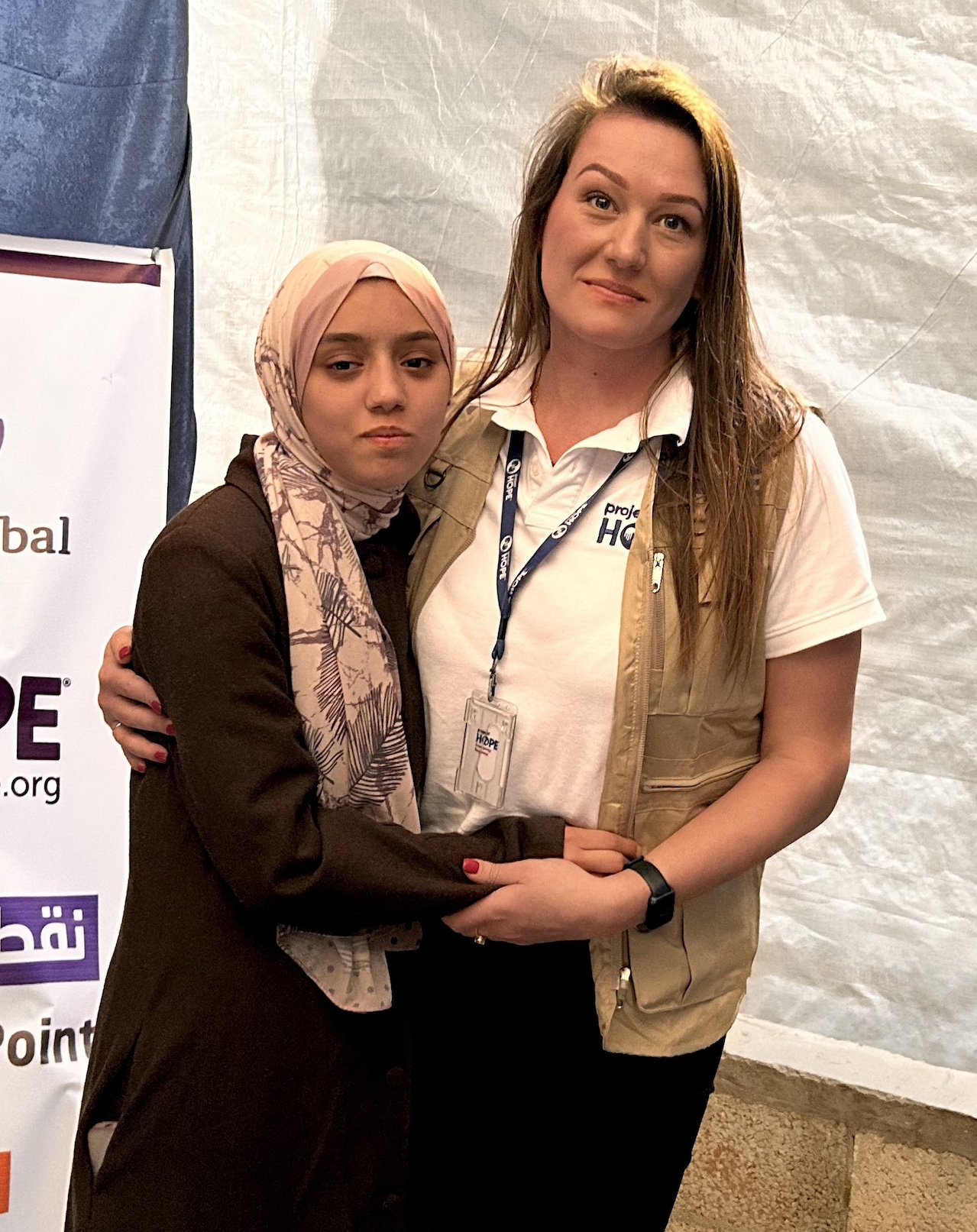
My first visit was to our Rafah medical point at an IDP tent camp. There was a line of women, children, and pregnant women. The physicians and a gynecologist provide as many as 50 consultations and ultrasounds every day. There I met an 18-year-old girl who told me her heartbreaking story. Her family house in North Gaza was bombed and her entire family died. She was the only survivor, with burns all over her body. She was displaced to Rafah, and her aunt is the only member of her family left. I could hardly hold back my tears. When she raised her eyes, I saw nothing in them. There was no life. Her soul was killed alongside her family in their house.
Another day I went to Deir Al-Balah. The road took us along the coast. On one side I saw a beautiful landscape: the Mediterranean Sea with sandy beaches. But from the other side there were tents with whole families living in them without power, heating, and sanitation, with barefoot children desperately seeking food and water. It was impossible to understand how human beings could make a hell out of what could be a paradise for people to live and enjoy their lives.
The wars in Ukraine and Gaza continue, but we remain resilient in our efforts to support those in need, providing essential aid and services to vulnerable populations. Unfortunately, the need is far greater than what we can supply. We hope the world will not forget and will continue to support the people of Ukraine and Gaza as much as needed.
>> Learn more about Project HOPE’s response in Gaza and how you can help
>> Learn more about our work in Ukraine
Vira Topikha is a program specialist for Project HOPE in Ukraine.


